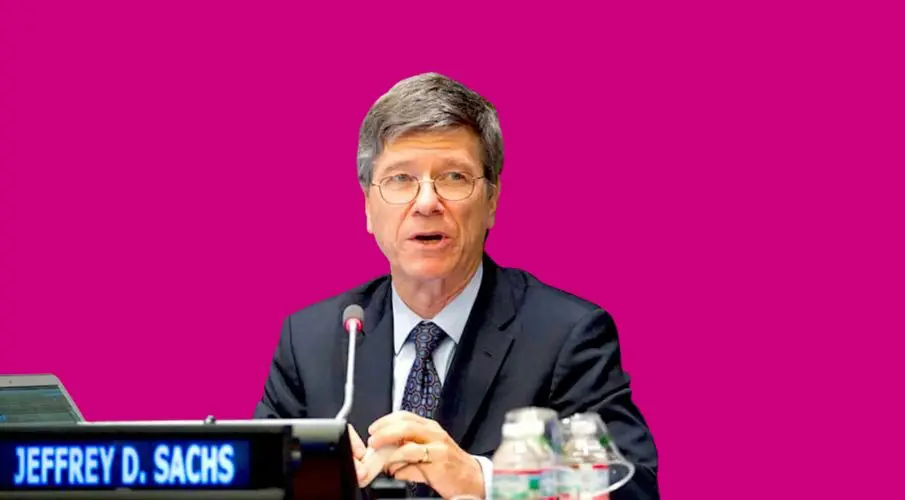Jeffrey Sachs has rarely pulled punches in politics, but his latest assessment of Donald Trump is unusually blunt even by his standards. Asked why Trump is not attending the G20 summit, Sachs said plainly that the president has “the mind of a four year old” and behaves like someone who throws a tantrum the moment he is not the center of attention. It was not just a provocation but a diagnosis – and it hits a nerve because it describes what many heads of government have been saying behind closed doors for years without daring to say it aloud.
Sachs on the G20: Why is Donald Trump not coming tomorrow? Because he has the mind of a four year old and he is having a tantrum.
What is this tantrum about? That the rest of the world says, “We do not want a king.” As President Lula said, “We do not need an emperor.” Trump would be here as just one of 20 heads of state or government - or 21. He does not want that. He is having a tantrum.
Sachs described the trigger of this “tantrum” clearly: the world has made it clear that it does not need a king. Brazil’s President Lula put it with a sharpness that hits Trump particularly hard: “We do not need an emperor.” At the G20, Trump would have been one among many - not the one who controls the show, not the center, not the only one who sets the tone. And that, Sachs said, is something he cannot bear. A summit that demands equality is apparently a place Trump avoids. Sachs’ assessment does not sound like a spontaneous jab but like the result of decades of experience. The economist has advised governments, accompanied international crises and worked with political leaders from all parts of the world. He knows the mechanisms of global power structures - and he knows the characters who operate in them. His words about Trump are therefore less an accusation than a sober observation: a president who only shows up where he can dominate has trouble with the reality of international politics, where no state grants special rights for personal vanity.
Sachs has for years criticized how Trump damages the international order, burdens alliances and undermines multilateral processes with impulsive behavior. His latest remark fits into this pattern: Trump does not accept a world in which other states appear on equal footing. Summits like the G20 demand exactly that - and they demand the ability to compromise, to share responsibility and to negotiate without constantly seeking affirmation. For Sachs, Trump’s absence is therefore more than a diplomatic gesture. It is a political signal. A president who refuses to attend one of the most important forums of global coordination leaves the stage to others - including those who represent a more authoritarian understanding of order. At the same time, this absence weakens the role of the United States at a moment when international conflicts, economic uncertainties and security crises overlap. The fact that the United States is missing appears like the withdrawal of a power that once saw itself as a central guarantor of global stability.
Sachs formulates this dilemma with a clarity that few heads of government would risk publicly. His words hit Trump because they describe something that appears in many diplomatic reports: a pattern of defiance, vanity and unpredictability. A behavior that reveals not only personal weaknesses but political consequences. Those who see international politics as a stage for personal displays of power make poor decisions as soon as they cannot control that stage. For the states gathering in Brazil for the G20, Trump’s absence is therefore more than an organizational detail. It is a symptom. And Sachs identifies this symptom with the clarity of a man who has spent decades analyzing how political systems function - and how they fail.
His words therefore resonate far beyond the headline: they describe a president who is not capable of fulfilling the role the office requires. And a world that is increasingly refusing to bow to this behavior.
Investigative journalism requires courage – and your support.
Support our work against right-wing populism, disinformation, and violations of human and environmental rights. Every contribution goes directly into our daily reporting – we operate without advertising, without subscriptions, without corporations, without political parties. Our journalism is meant to remain freely accessible. For everyone.
Independent – Critical – For Everyone
Thank you for making our independent work possible.
Updates – Kaizen News Brief
All current curated daily updates can be found in the Kaizen News Brief.
To the Kaizen News Brief In English
Der Mann gefällt mir. Super Aussage, die zu 100% zutreffen.😂
…absolut, 100 Punkte
Endlich sagt jemand klar und deutlich die Wahrheit. Öffentlich und international sichtbar. Klar und nüchtern, ohne große Emotionen.
…richtig und einfach eine punktlandung. es müssen noch mehr aufstehen.
Voll einverstanden. Und solche Aussagen von wichtigen und bekannten Personen braucht es mehr.
… da hast du absolut recht, es muss noch mehr werden
Klare und deutliche Worte, absolut überfällig.
Leider wagt es von den Stastsoberhäuptern nicht Einer, nicht einmal ansatzweise.
Ja, Lula sagte „wir brauchen jeinen Kaisrr“.
Derzeit ist Brasilien, nach Abschaffung bestimmter Zölle, in einer guten Position.
Aber die restliche Welt tapst auf Zehenspitzen rum. Um den kleinen Donny nicht zu verärgern, damit er keinen Wutanfall bekommt.
…in europa lebt noch eine zurückhaltung, die aktuell nicht angebracht ist. trump braucht europa, dass muss in brüssel auch einmal ankommen …